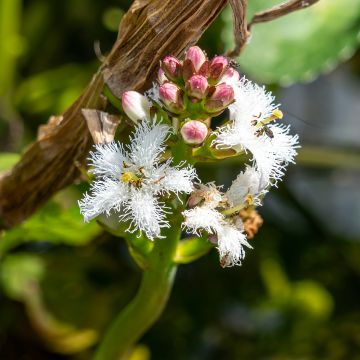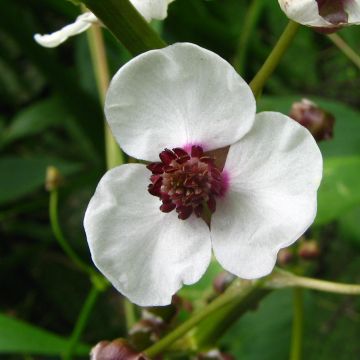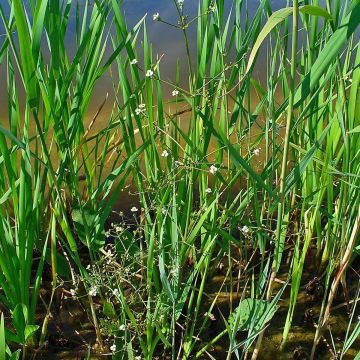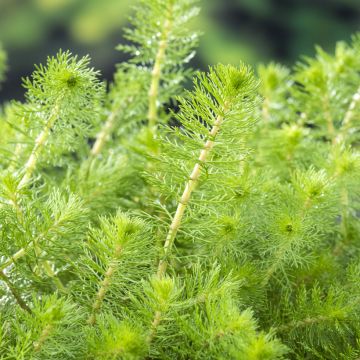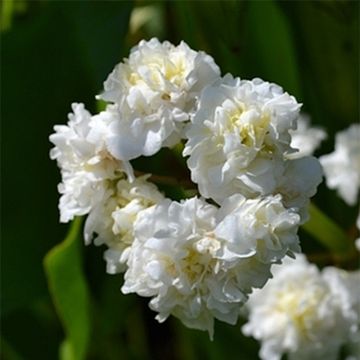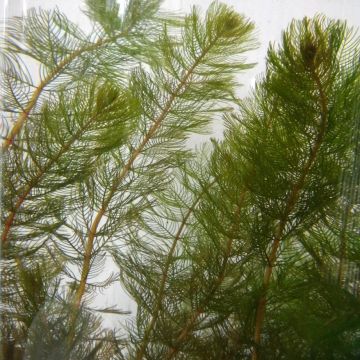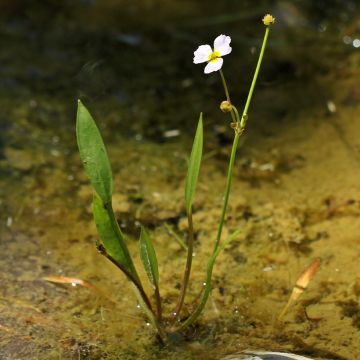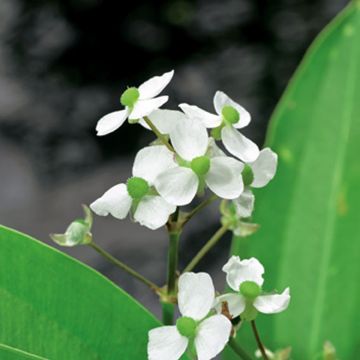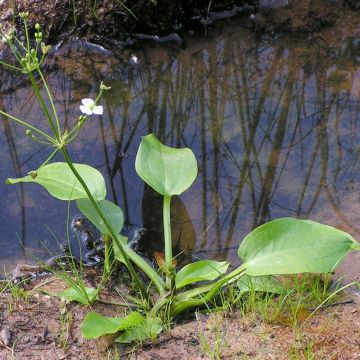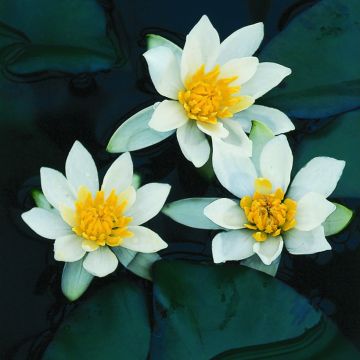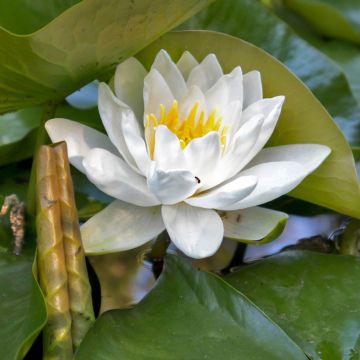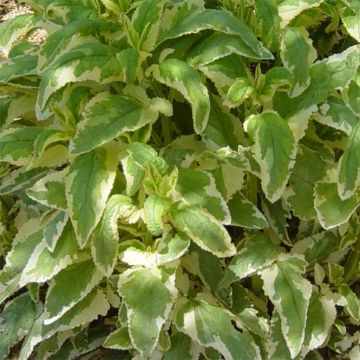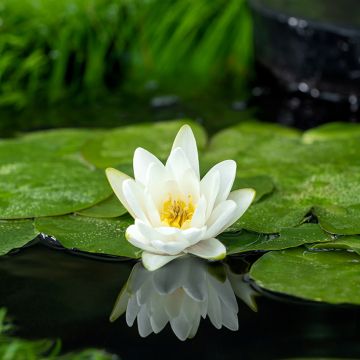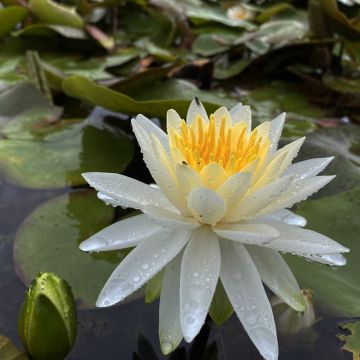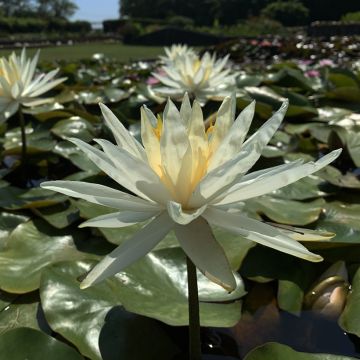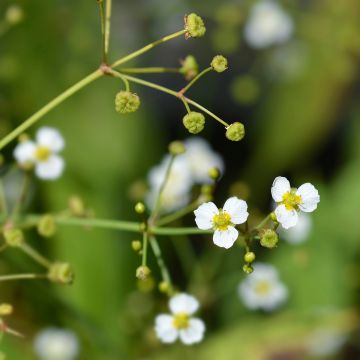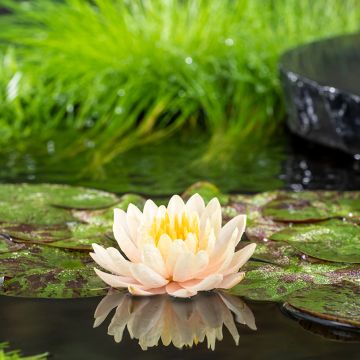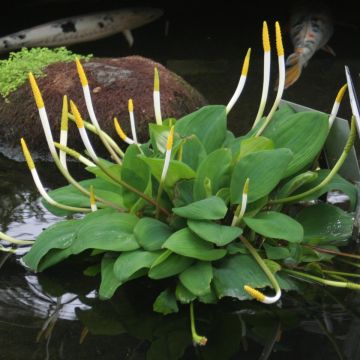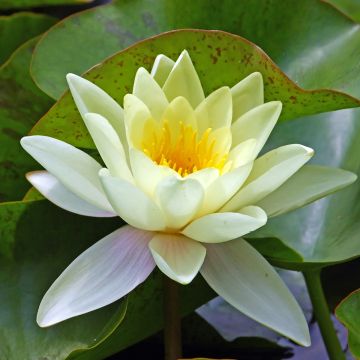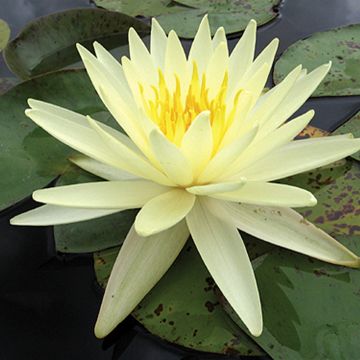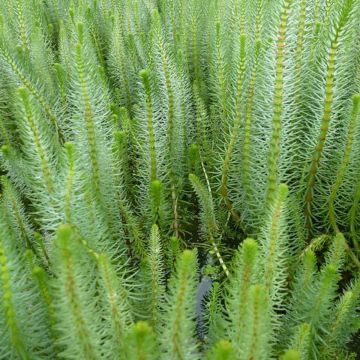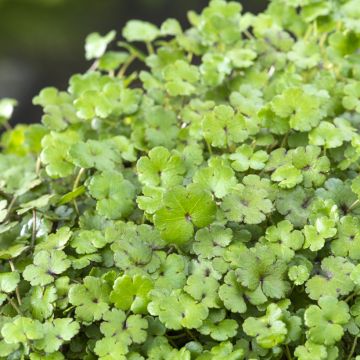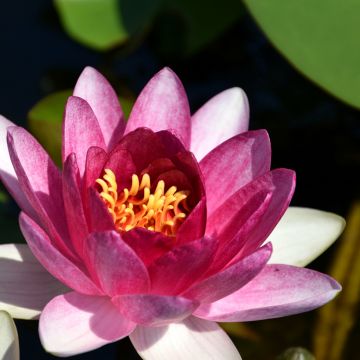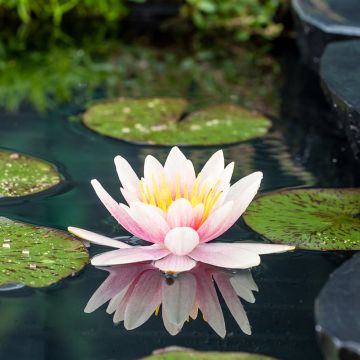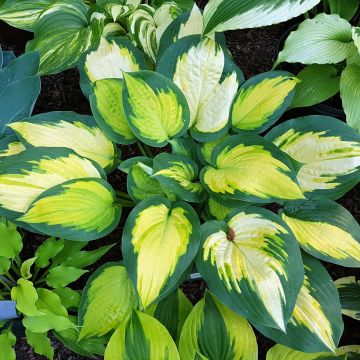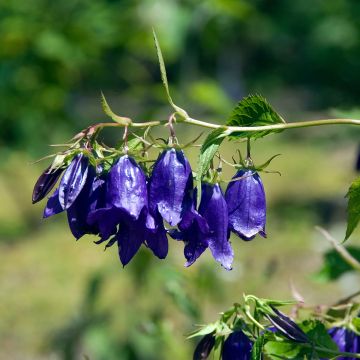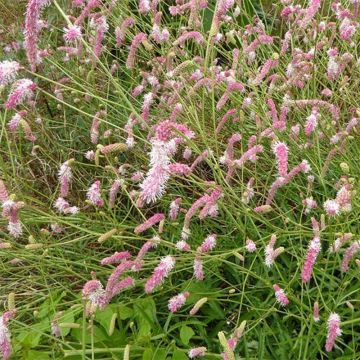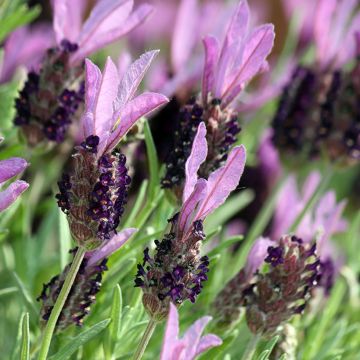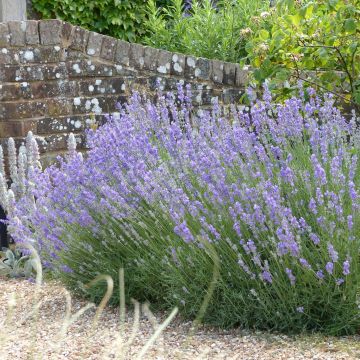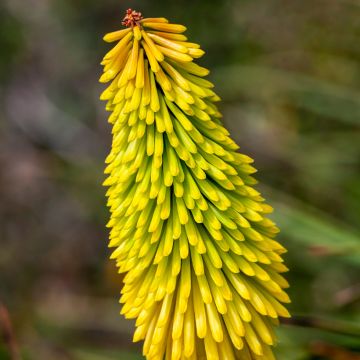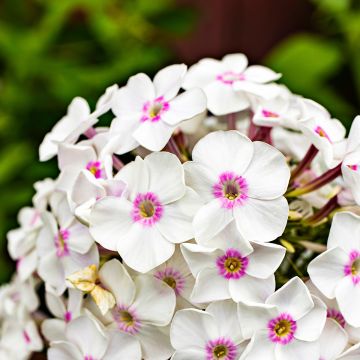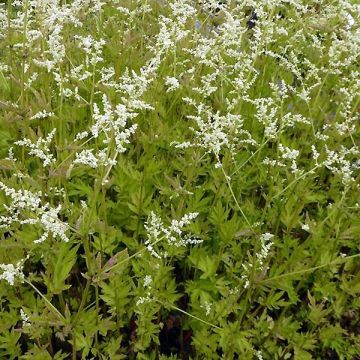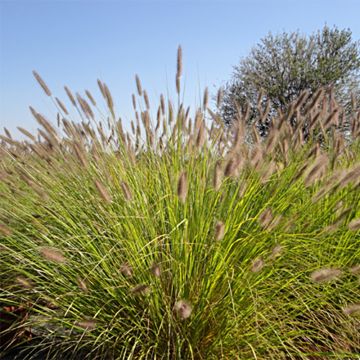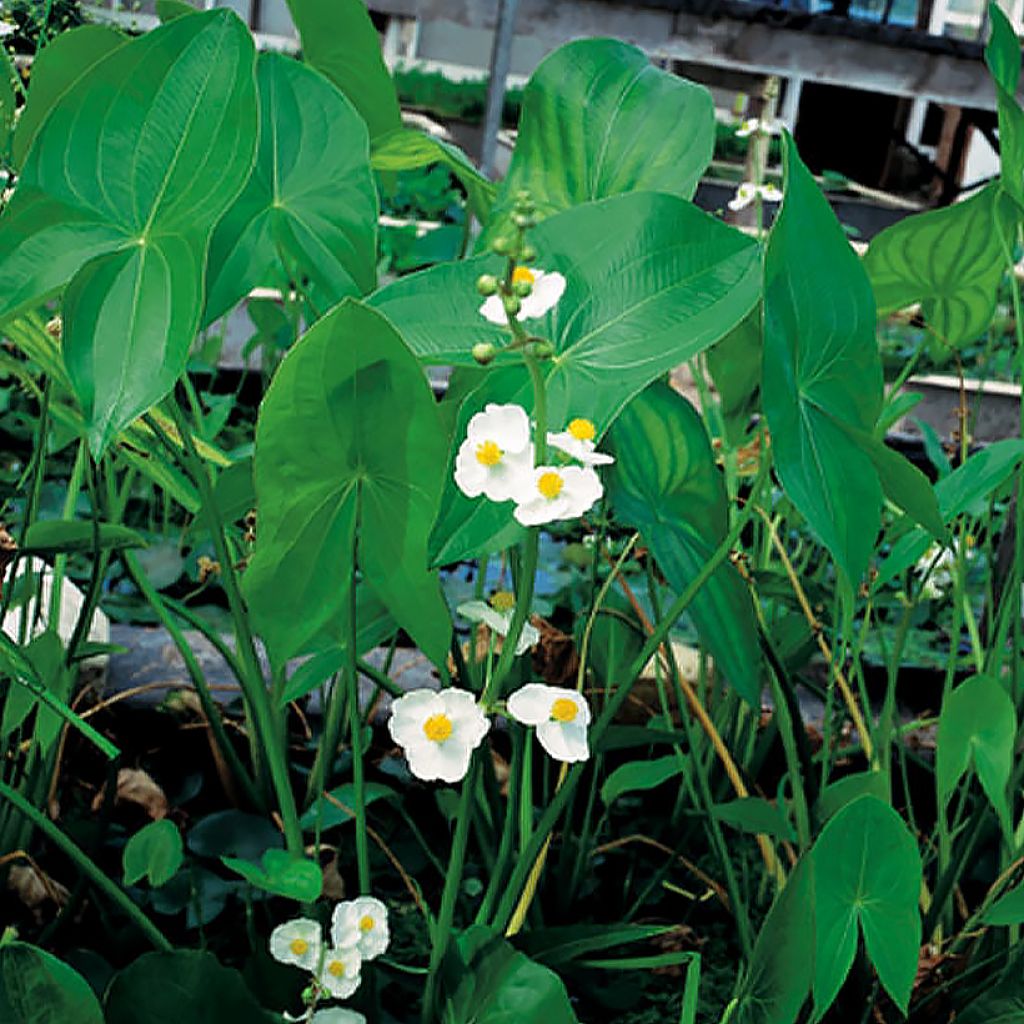

Sagittaria latifolia
Sagittaria latifolia
Sagittaria latifolia
Broadleaf arrowhead, duck-potato, Indian potato, wapato
Why not try an alternative variety in stock?
View all →This plant carries a 12 months recovery warranty
More information
We guarantee the quality of our plants for a full growing cycle, and will replace at our expense any plant that fails to recover under normal climatic and planting conditions.
From €5.90 for pickup delivery and €6.90 for home delivery
Express home delivery from €8.90.
Does this plant fit my garden?
Set up your Plantfit profile →
Description
The Sagittaria latifolia, also known as Broadleaf Arrowhead or Water Potato, is a perennial aquatic plant with large, lance-shaped leaves that are highly ornamental. It also produces white flowers along the stems in summer. Its filtering and dephosphating properties make it useful in lagoon systems or any wastewater treatment, such as phytoremediation. In addition to its practical uses, it also adds beauty to ponds. Plant it at a shallow depth, maximum 40 cm. If the conditions are favorable, it will slowly spread through stolons and can even become invasive in natural ponds.
The Sagittaria latifolia belongs to the Alismataceae family. It is a tuberous plant that grows up to 60 cm tall, and up to 1 m tall where it thrives. It is native to North and Central America and has naturalised in Europe and France. It can be found along lakes and rivers. It blooms in July-August. The flowers are arranged in whorls of three along the stem, with male flowers at the top and female flowers below. They are white with yellow stamens. This plant exhibits a unique characteristic: it has 3 types of leaves, known as foliar polymorphism. The submerged leaves form long ribbons up to 1.20 m long and can create true aquatic meadows. The floating emergent leaves are heart-shaped, and the upright leaves above the water are acute arrow-shaped. The underground stem produces numerous shoots that end in tubercles, which are used for propagation and are edible.
The Broadleaf Arrowhead has multiple uses. It is highly decorative and can be used to adorn ponds and aquatic containers on terraces. It is also suitable for filtering water along natural streams, in shallow stagnant waters, and in marshy gardens. It tolerates salinity and large water level fluctuations. To prevent it from becoming too invasive, it can be planted in submerged containers in ponds.
Report an error about the product description
Flowering
Foliage
Plant habit
Botanical data
Sagittaria
latifolia
Alismataceae
Broadleaf arrowhead, duck-potato, Indian potato, wapato
Sagittaria chinensis
North America
Other Aquatic perennials
Planting and care
Plant Sagittaria latifolia in rich soil, even clayey or loamy-clayey, slightly alkaline, neutral to slightly acidic. Install it in a sunny location. In nature, these plants grow on the edges of ponds and water points, and are inseparable from natural, stagnant, shallow waters. Sagittaria should be planted at a maximum depth of 40 cm. It is preferable to clean it in August-September, by cutting back the spreading foliage and removing faded flowers to prevent spontaneous sowing.
Planting period
Intended location
Care
This item has not been reviewed yet - be the first to leave a review about it.
Summer flowering perennials
Haven't found what you were looking for?
Hardiness is the lowest winter temperature a plant can endure without suffering serious damage or even dying. However, hardiness is affected by location (a sheltered area, such as a patio), protection (winter cover) and soil type (hardiness is improved by well-drained soil).

Photo Sharing Terms & Conditions
In order to encourage gardeners to interact and share their experiences, Promesse de fleurs offers various media enabling content to be uploaded onto its Site - in particular via the ‘Photo sharing’ module.
The User agrees to refrain from:
- Posting any content that is illegal, prejudicial, insulting, racist, inciteful to hatred, revisionist, contrary to public decency, that infringes on privacy or on the privacy rights of third parties, in particular the publicity rights of persons and goods, intellectual property rights, or the right to privacy.
- Submitting content on behalf of a third party;
- Impersonate the identity of a third party and/or publish any personal information about a third party;
In general, the User undertakes to refrain from any unethical behaviour.
All Content (in particular text, comments, files, images, photos, videos, creative works, etc.), which may be subject to property or intellectual property rights, image or other private rights, shall remain the property of the User, subject to the limited rights granted by the terms of the licence granted by Promesse de fleurs as stated below. Users are at liberty to publish or not to publish such Content on the Site, notably via the ‘Photo Sharing’ facility, and accept that this Content shall be made public and freely accessible, notably on the Internet.
Users further acknowledge, undertake to have ,and guarantee that they hold all necessary rights and permissions to publish such material on the Site, in particular with regard to the legislation in force pertaining to any privacy, property, intellectual property, image, or contractual rights, or rights of any other nature. By publishing such Content on the Site, Users acknowledge accepting full liability as publishers of the Content within the meaning of the law, and grant Promesse de fleurs, free of charge, an inclusive, worldwide licence for the said Content for the entire duration of its publication, including all reproduction, representation, up/downloading, displaying, performing, transmission, and storage rights.
Users also grant permission for their name to be linked to the Content and accept that this link may not always be made available.
By engaging in posting material, Users consent to their Content becoming automatically accessible on the Internet, in particular on other sites and/or blogs and/or web pages of the Promesse de fleurs site, including in particular social pages and the Promesse de fleurs catalogue.
Users may secure the removal of entrusted content free of charge by issuing a simple request via our contact form.
The flowering period indicated on our website applies to countries and regions located in USDA zone 8 (France, the United Kingdom, Ireland, the Netherlands, etc.)
It will vary according to where you live:
- In zones 9 to 10 (Italy, Spain, Greece, etc.), flowering will occur about 2 to 4 weeks earlier.
- In zones 6 to 7 (Germany, Poland, Slovenia, and lower mountainous regions), flowering will be delayed by 2 to 3 weeks.
- In zone 5 (Central Europe, Scandinavia), blooming will be delayed by 3 to 5 weeks.
In temperate climates, pruning of spring-flowering shrubs (forsythia, spireas, etc.) should be done just after flowering.
Pruning of summer-flowering shrubs (Indian Lilac, Perovskia, etc.) can be done in winter or spring.
In cold regions as well as with frost-sensitive plants, avoid pruning too early when severe frosts may still occur.
The planting period indicated on our website applies to countries and regions located in USDA zone 8 (France, United Kingdom, Ireland, Netherlands).
It will vary according to where you live:
- In Mediterranean zones (Marseille, Madrid, Milan, etc.), autumn and winter are the best planting periods.
- In continental zones (Strasbourg, Munich, Vienna, etc.), delay planting by 2 to 3 weeks in spring and bring it forward by 2 to 4 weeks in autumn.
- In mountainous regions (the Alps, Pyrenees, Carpathians, etc.), it is best to plant in late spring (May-June) or late summer (August-September).
The harvesting period indicated on our website applies to countries and regions in USDA zone 8 (France, England, Ireland, the Netherlands).
In colder areas (Scandinavia, Poland, Austria...) fruit and vegetable harvests are likely to be delayed by 3-4 weeks.
In warmer areas (Italy, Spain, Greece, etc.), harvesting will probably take place earlier, depending on weather conditions.
The sowing periods indicated on our website apply to countries and regions within USDA Zone 8 (France, UK, Ireland, Netherlands).
In colder areas (Scandinavia, Poland, Austria...), delay any outdoor sowing by 3-4 weeks, or sow under glass.
In warmer climes (Italy, Spain, Greece, etc.), bring outdoor sowing forward by a few weeks.

































